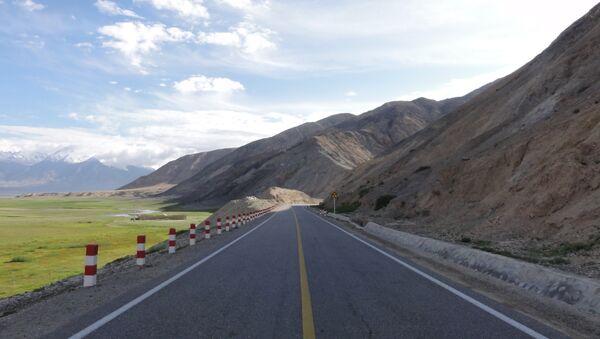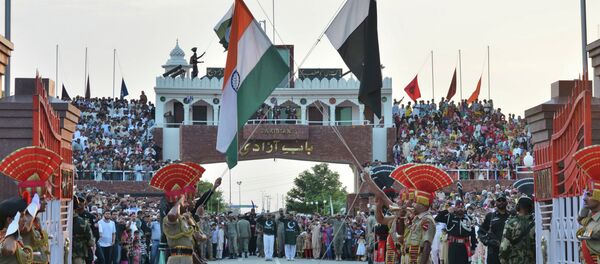"The economic corridor between China and Pakistan provides regional connectivity which is lacking in our region. Ultimately, India will benefit from it as well. When the connectivity in the region is improved, India will benefit from it economically: from trade, from communications, from improved infrastructure," Janjua said.
In April, Chinese President Xi Jinping singed agreements to invest $46 billion in Pakistani infrastructure, with a focus on building the CPEC.
Pakistan is already part of China's Silk Road Economic Belt project, which was initiated by President Xi in 2013 to boost cooperation between China and a number of Central Asian nations.
India Narrowing Agenda of Talks With Pakistan Breaches Ufa Agreements
Indian and Pakistani national security advisers were supposed to meet late, in August, as a part of a peace effort announced by the two countries at the Shanghai Cooperation Organization summit in Ufa in July.
"Indian preconditions to limit the visit of Pakistan’s national security advisers to discuss only terrorism-related issues, defy the understanding reached in Ufa between the two prime ministers, which clearly stated that the two sides would discuss all outstanding issues," Zaheer Janjua said.
The NSA-level talks between India and Pakistan were canceled hours before they were due to start on August 23 amid mutual recriminations. New Delhi demanded that Islamabad restrict the talks to the subject of terrorism following a row over Pakistan's plan to meet Kashmiri separatist leaders and widen the scope of the talks. In turn, Islamabad said that it could not accept India's "preconditions" for the talks.
"The main purpose of any dialogue between Pakistan and India is to reduce tensions and restore trust. If the only purpose of the NSA’s visit was to discuss terrorism, instead of improving the prospects, it would only have intensified the blame game," the diplomat warned.
He described India’s objections to the meeting between Pakistani security advisers and Kashmiri leaders as "incomprehensible."
"The Pakistani High Commissioner’s invitation to the Kashmiri leadership was very much in keeping with the tradition of the past many years. Pakistan sees no reason to depart from this established practice," he argued.
Relations between the two countries have been strained since the end of British rule seven decades ago. They agreed to a ceasefire in 2003 following a number of military conflicts over control of the Jammu and Kashmir region. Both sides have repeatedly accused each other of violating the truce.




